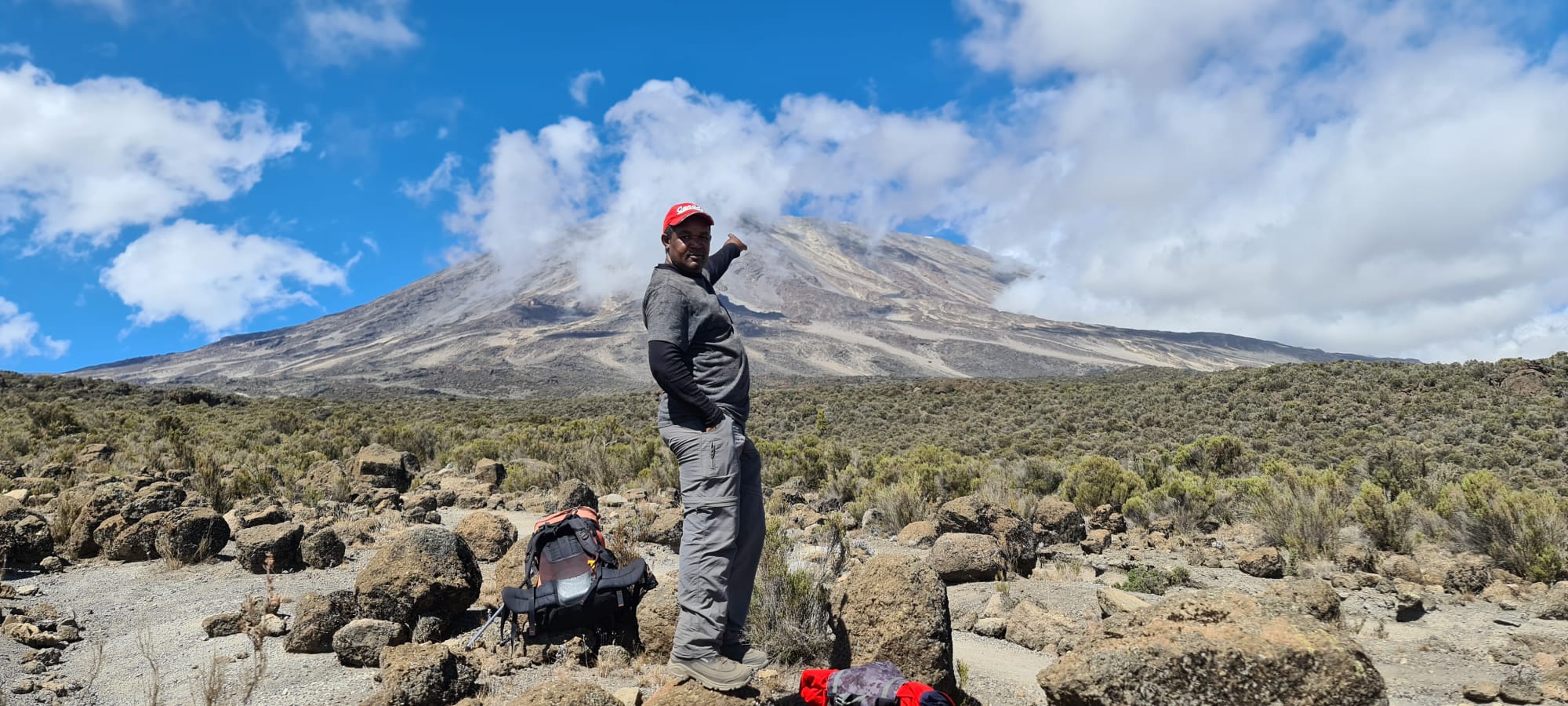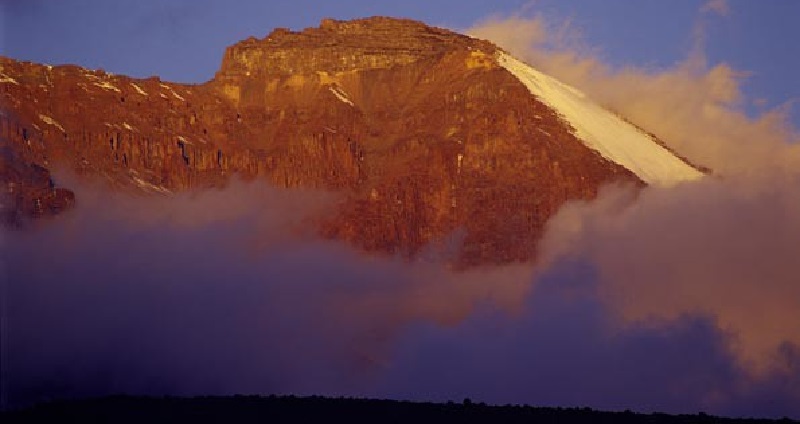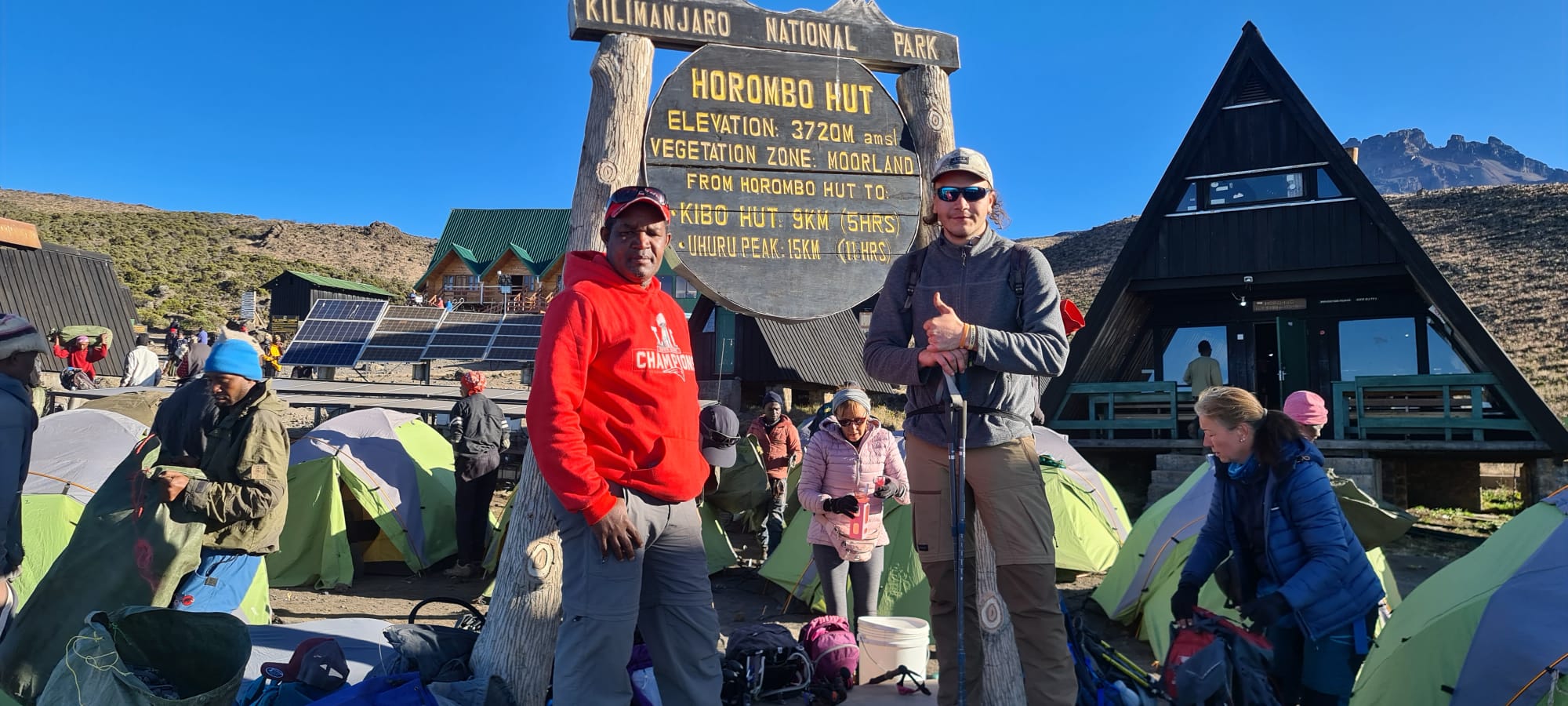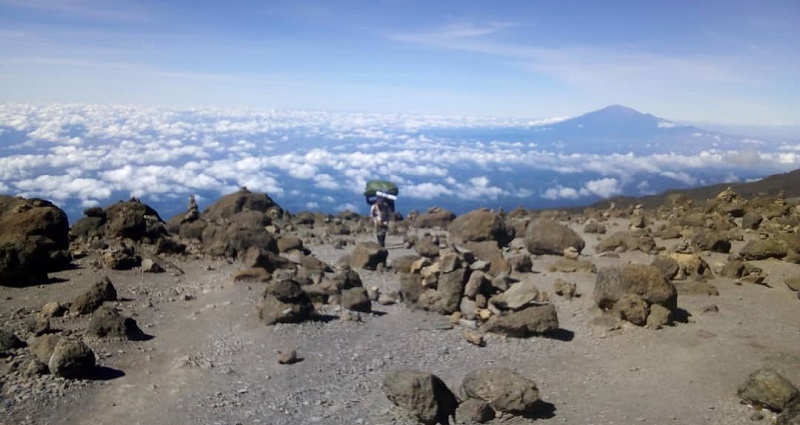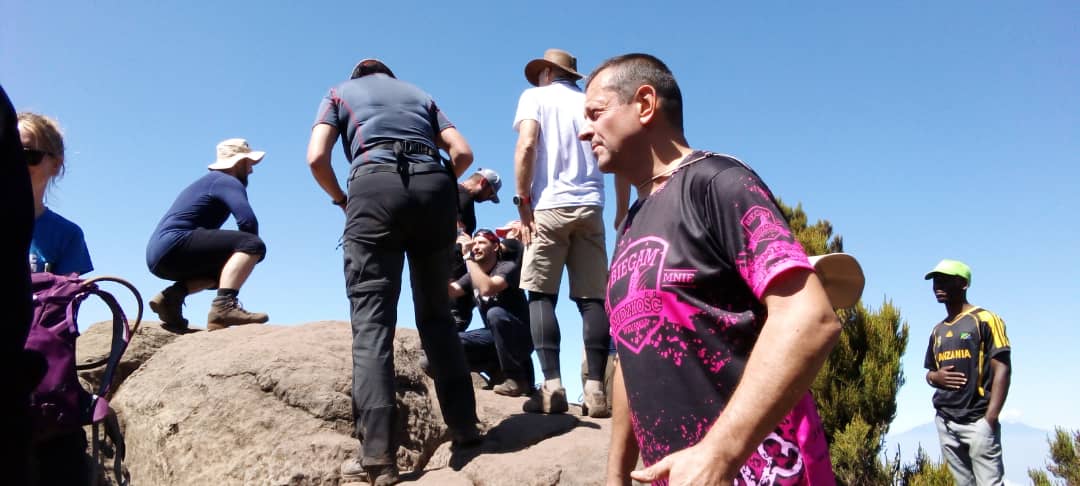6 DAYS RONGAI ROUTE - MT.KILIMANJARO TREKKING
ABOUT ROUTE
The Rongai route is the only route that approaches Kilimanjaro
from the north. Rongai is a moderately difficult route, and is highly
recommended,
especially for those with less backpacking experience.
Rongai route is truly one of the more remote and wild trails on the entire mountain.
Despite that however, this route offers trekkers plenty of advantages, making it a
very appealing option for those looking for a unique experience on Africa’s tallest peak.
Due to its remote nature, the Rongai Route is among the least visited of all of the
trails on Mount Kilimanjaro. Those who choose this path will experience peace and quiet
for much of the trek,
Though gaining popularity amongst climbers, this route still experiences low crowds.
Route Itinerary,Price,Map & Equipments needed for Trekking
DAY 1: Rongai Gate (Nalemoru) - Simba Camp,Distance: 7km. Hiking time: 3-4 hours. Elevation: (2364m) - (2671m). Habitat: Montane Forest.
Drive to the attractive wooden village of Nalemoru. After signing in and preparing the porters, you will begin the hike on a wide path that winds through fields of maize and potatoes before entering pine forest. The track then starts to climb consistently but gently through attractive forest that shelters a variety of wildlife. The forest begins to thin out and the first camp is at the edge of the moorland zone with extensive views over the Kenyan plains.
DAY 2: Simba Campsite - Kikelewa Campsite
Distance: 16 Km. Trekking time: 8 hours. Elevation: (2671m) - (3600M). Habitat: Moorland.
Hike from Simba campsite “pole pole” while noticing changes in vegetations. The trail leads to second cave to have a lunch break. Proceed with the climb to arrive at Kikelewa campite in the evening. Dinner and overnight stay at the campsite
DAY 3: Kikelewa Camp - Mawenzi Turn Hut . Distance: 3km. Walking Time: 2 hours.
Elevation: (3600 m) - (4315 m). Habitat: Semi-desert.
A short but steep climb up grassy slopes is rewarded by superb views. Leave the vegetation behind shortly before reaching the next camp at Mawenzi Turn, spectacularly situated in a cirque directly beneath the towering spires of Mawenzi. The afternoon will be free to rest or explore the surrounding area as an aid to acclimatization.
If you are spending an extra day on the mountain, you will camp for two nights here. You can hike up and around Mawenzi for your acclimatization hike.
DAY 4: Mawenzi Turn hut to Kibo Hut , Distance: 9km/5mi , Hiking Time: 4-5 hours , Elevation:(4315 m) - (4720m) , Habitat: Alpine Desert
Cross the lunar desert of the ‘Saddle’ between Mawenzi and Kibo to reach Kibo campsite at the bottom of the Kibo
crater wall. The remainder of the day is spent resting in preparation for the final ascent very early.
DAY 5: Kibo Hut (4720 m) to Summit and Horombo Hut (3720m), Distance: 6km/4mi up / 15km/9mi down.
Hiking Time: 6-8 hours up / 15km/9mi down.
Habitat: Alpine Desert.
Very early in the morning (midnight about 1 am), commence the climb to the summit on steep and heavy scree or snow up to Gilman’s Point located on the crater rim (elevation 5700m). Continuing ascend to Uhuru Peak, which is the highest point in Africa. There are unbelievable views at every turn. Have your picture taken at the summit to show your friends and family. From here we descend, stopping for lunch and a rest at Kibo before continuing on to the Horombo encampment.
The beginning of this climb is done in the dark and requires headlamps or flashlights. It will be very cold until you start descending, so you will need all of your warm layers. This is by far the most difficult part of the trek with many switchbacks. Going slowly “pole pole” and an optimistic attitude will get you there!
DAY 6: Horombo Hut (3720) to Marangu Gate (1879), Distance: 20km/12.5mi
Hiking Time: 4-5 hours
Habitat: Forest
After breakfast, a steady descent takes us down through moorland to the Mandara Hut. Continue descending through lush forest path to the National Park gate at Marangu. At lower elevations, it can be wet and muddy. Gaiters and trekking poles will help. Shorts and t-shirts will probably be plenty to wear (keep rain gear and warmer clothing handy). Our vehicle will meet you at Marangu gate to drive you back to your Hotel
MAP OF RONGAI ROUTE
PRICE INCLUDES
Private transport to & from Kilimanjaro International Airport to your accommodations in Moshi.
2 nights of accommodation in Moshi.
Transportation to & from the Kilimanjaro gate.
Park entry fees.
Camping fees.
Team Kilimanjaro Rescue fees.
18% VAT on tour fees & services.
4 Season mountain tents.
Double layered Sleeping Mats.
Friendly and professional mountain guides, cook and porters.
3 hot meals daily while on the mountain.
Enough treated & filtered drinking water throughout the trek.
Hot water for washing.
Fair wages for the mountain crew as approved by the Kilimanjaro National Park Authority (KINAPA), Kilimanjaro Association of Tour Operators (KIATO).
Government taxes.
Portable oxygen tanks & ox meter
Emergency first-aid kit.
PRICE EXCLUDES
Lunches, dinners and drinks at your hotel before and after climb.
Travel insurance.
Portable flush toilet with a toilet tent is available for extra charges $ 70 for the entire trek.
Flights.
Laundry (Available at hotel).
Personal items and toiletries.
Tips on Mountain Kilimanjaro are recommended for group sharing as follows:
Guide $20/guide/day ,
Cook $15/day,
Porters $10/porter/day.
Kilimanjaro Trekking Equipments
Clothes
Waterproof pants
1-2 Long Sleeve Trekking Shirts
1 Pairs of hiking pants
1 Fleece Jacket
1 Insulated Winter Jacket
2 pairs synthetic warm weather trekking socks
4 pairs heavier synthetic or wool blend socks
Top and Bottom Base Layer
3-4 Short Sleeve
Water/Windproof mittens
Lightweight gloves
Lightweight Rain gear
1 Pair of hiking boots
Balaclava
Trekking Equipment
A day pack
Headlamp with extra batteries
1 Sleeping bag
1 Duffel bag
A pair of trekking poles
Accessories
Backpack cover
Water bottle
Sunglasses
Electronic devices
Camera/Smartphone
Extra batteries/Power bank

